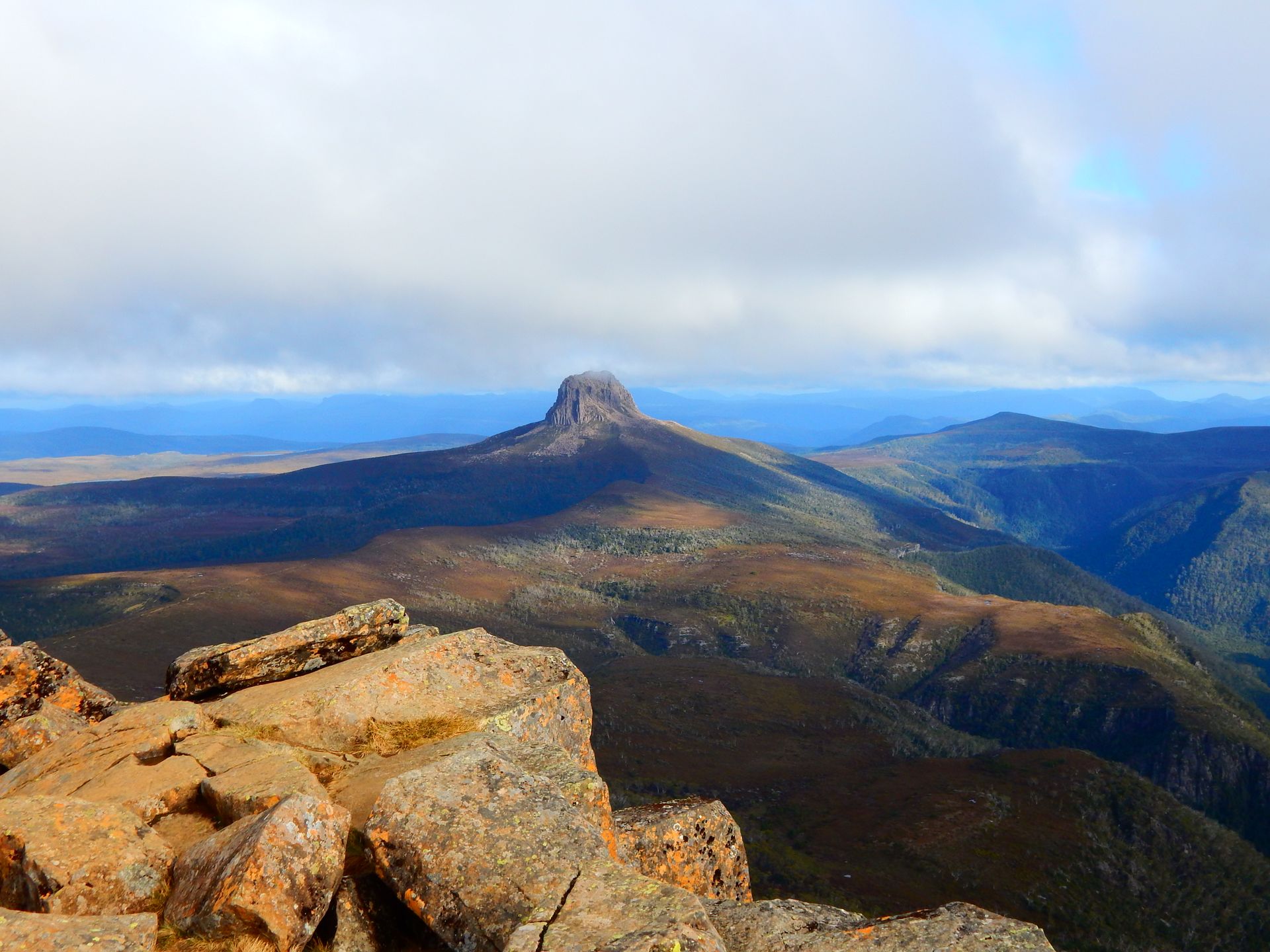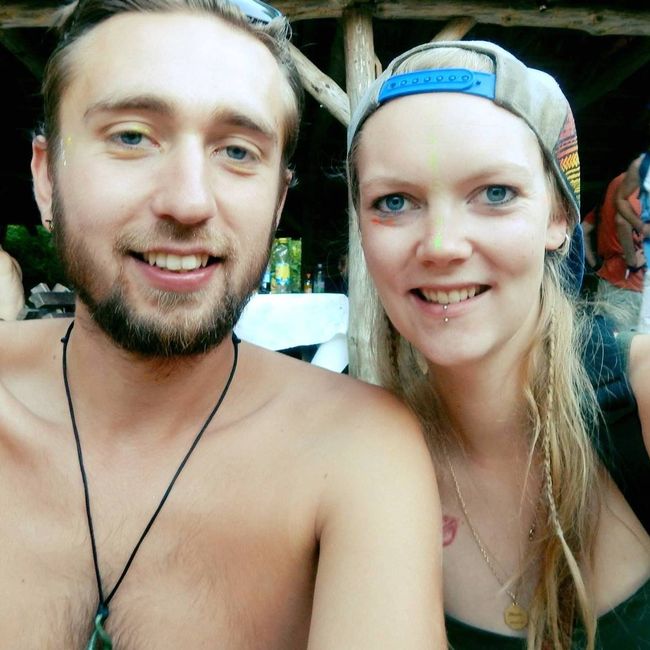Road trip - Tasmania's wild west
Imechapishwa: 12.02.2019
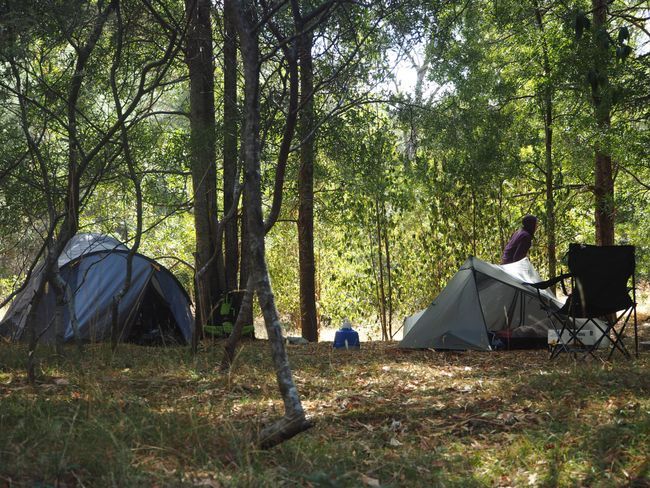
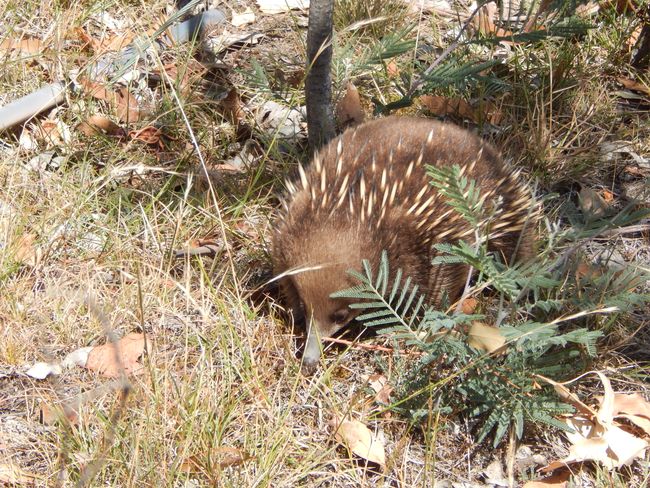
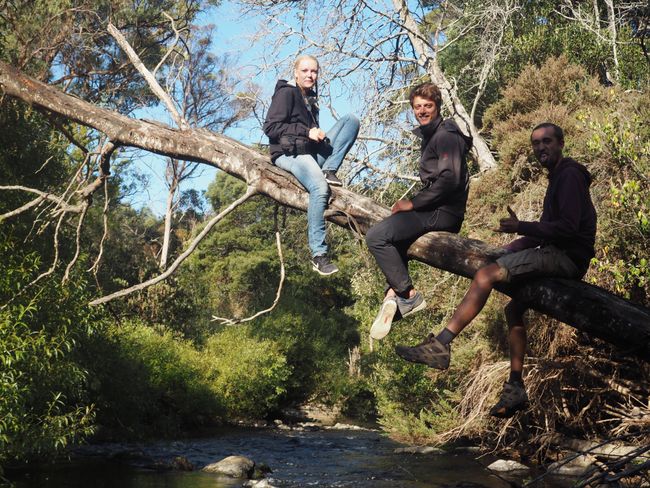
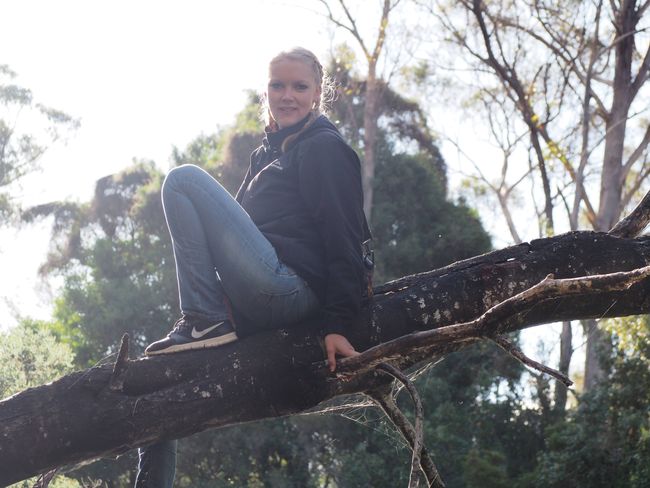
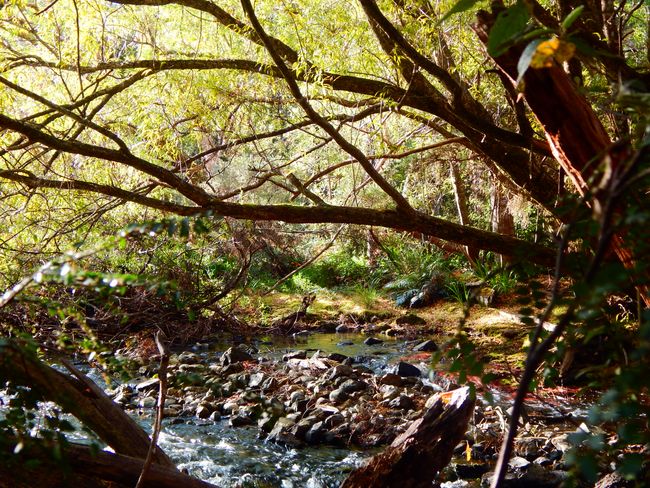
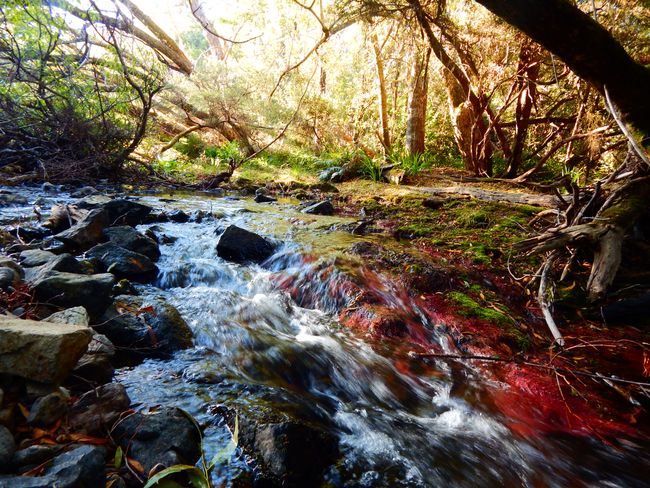
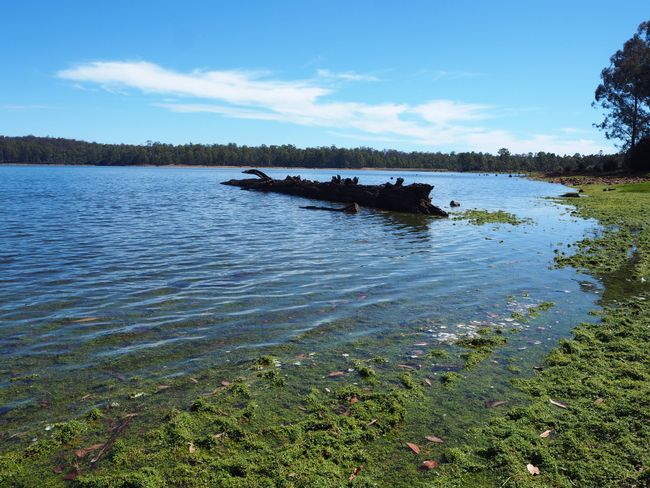
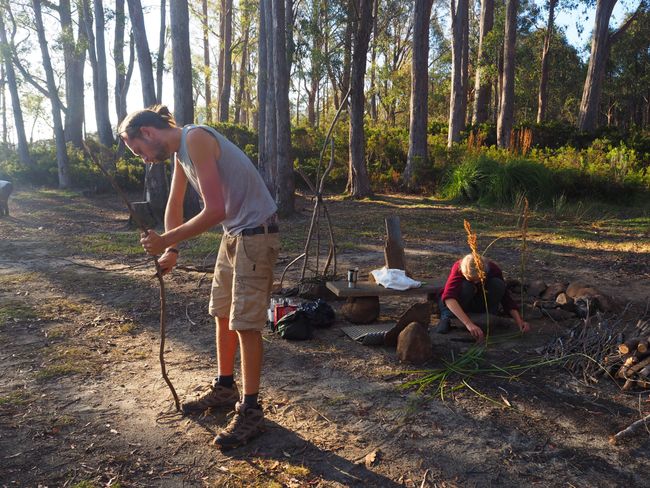
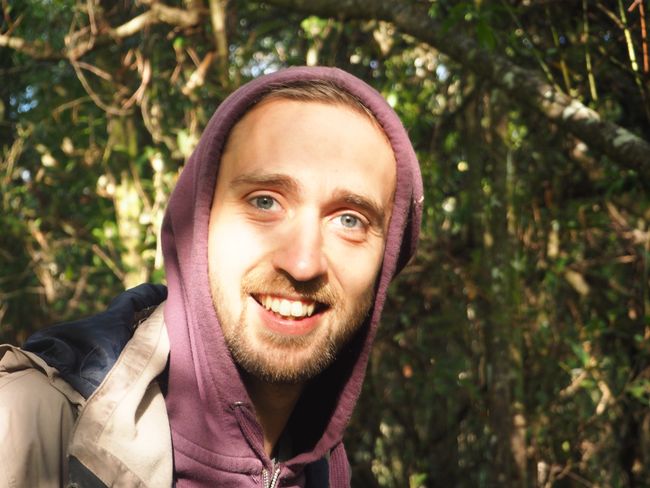
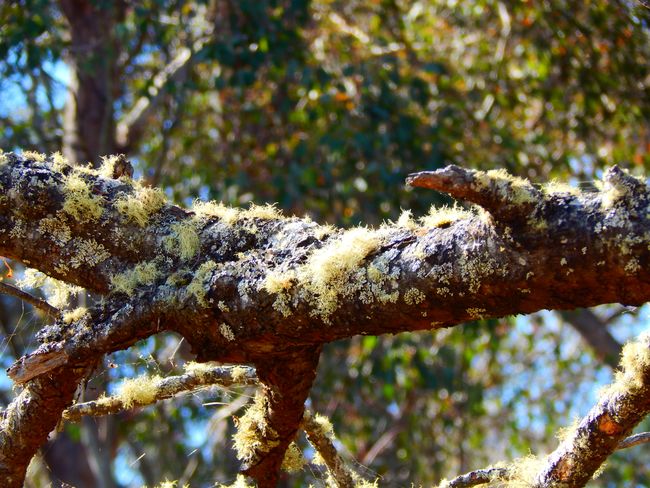
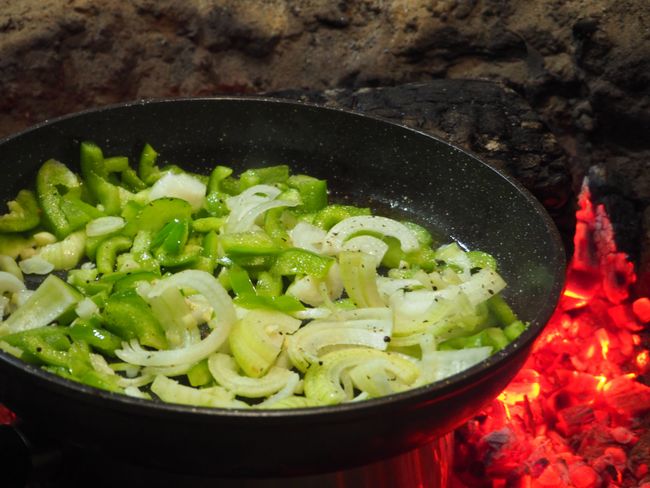
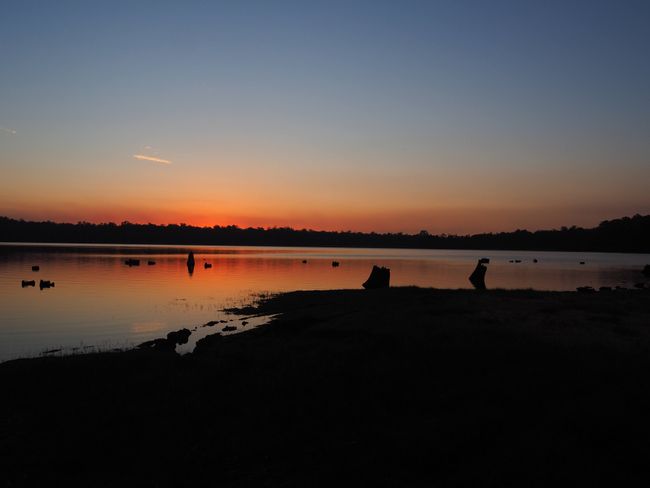
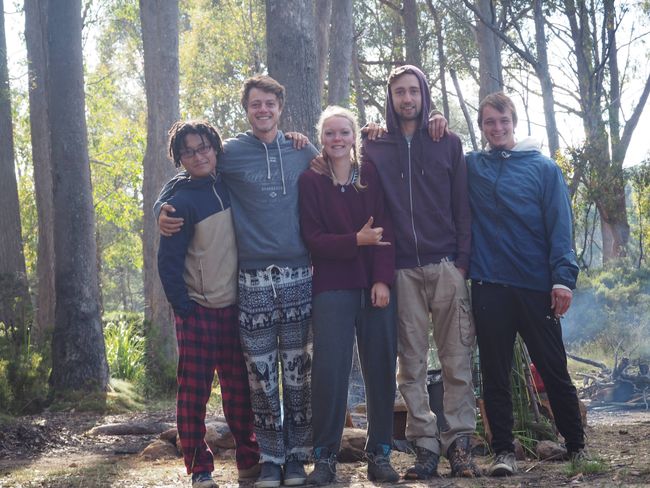
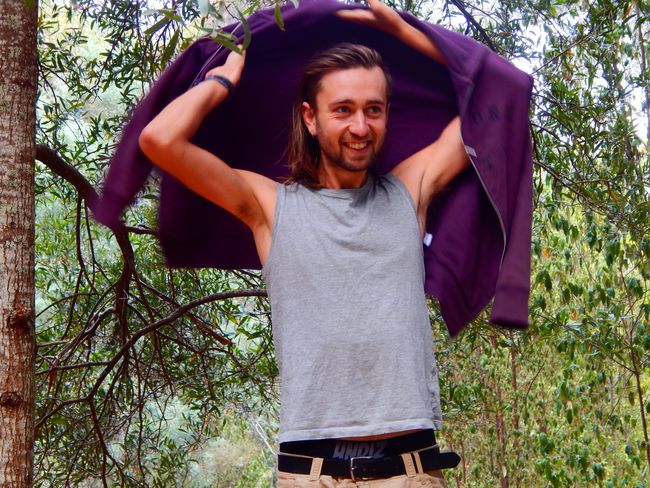
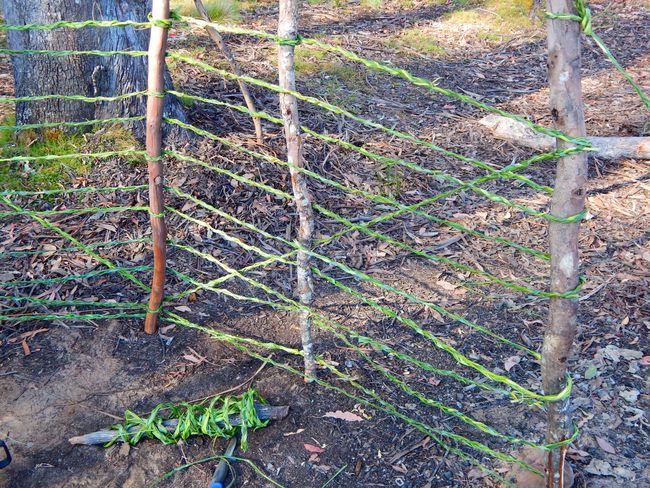
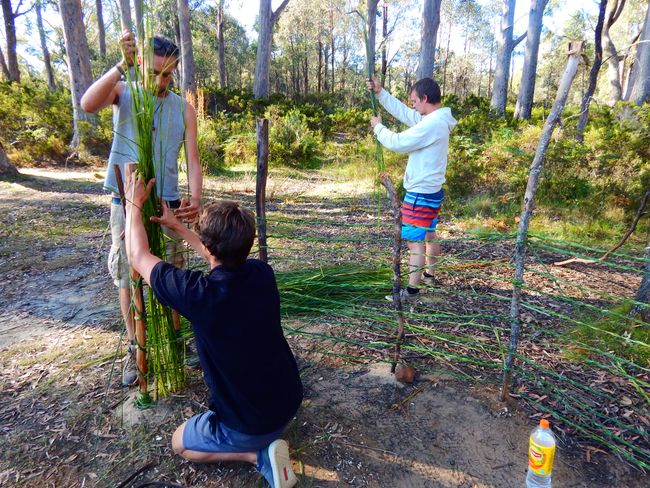
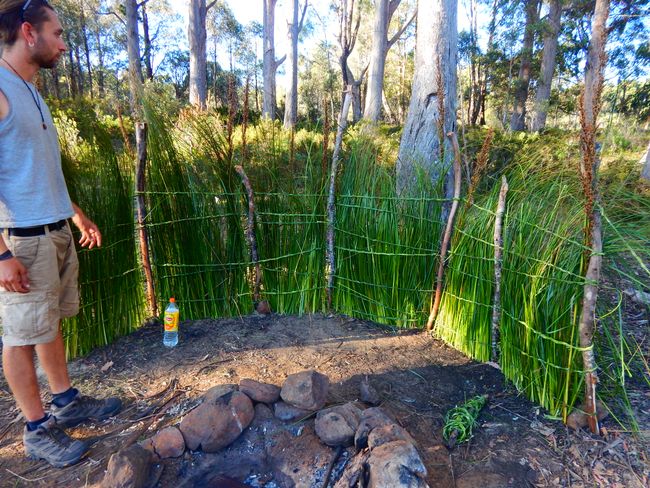
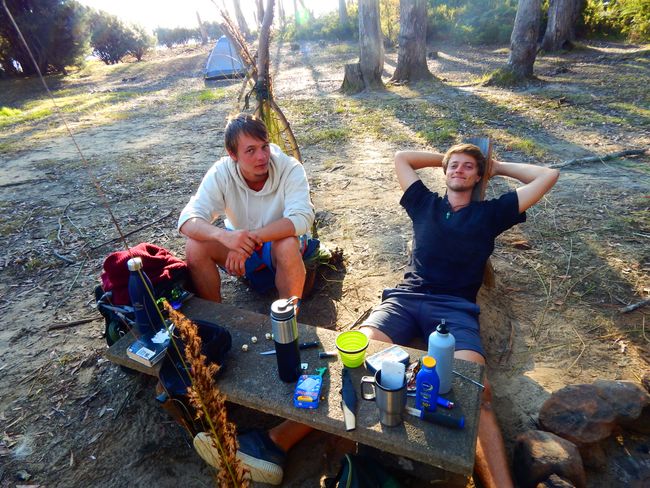
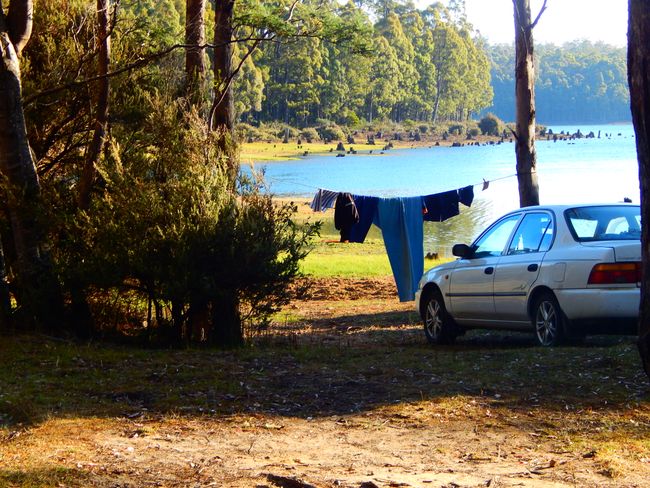
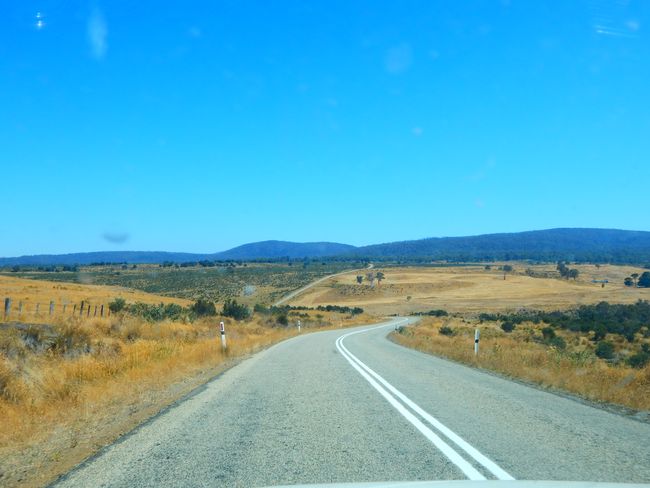
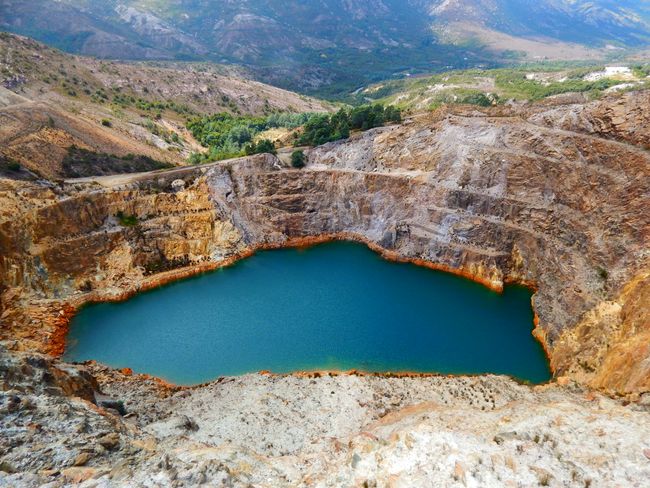
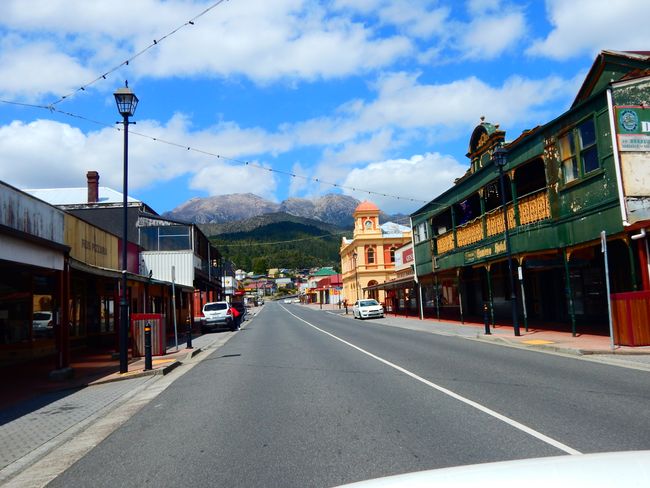
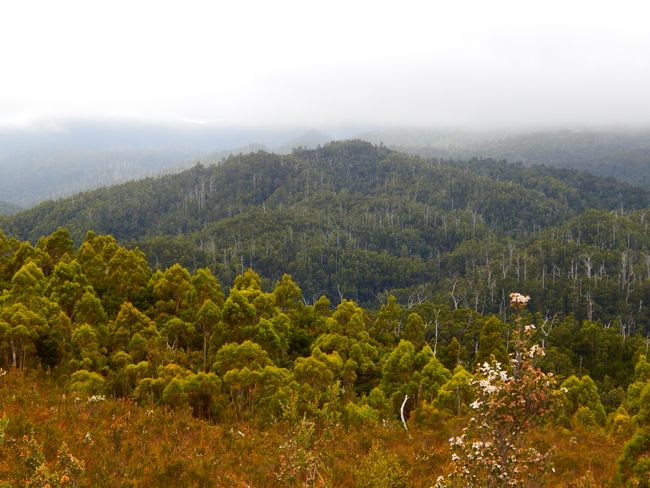
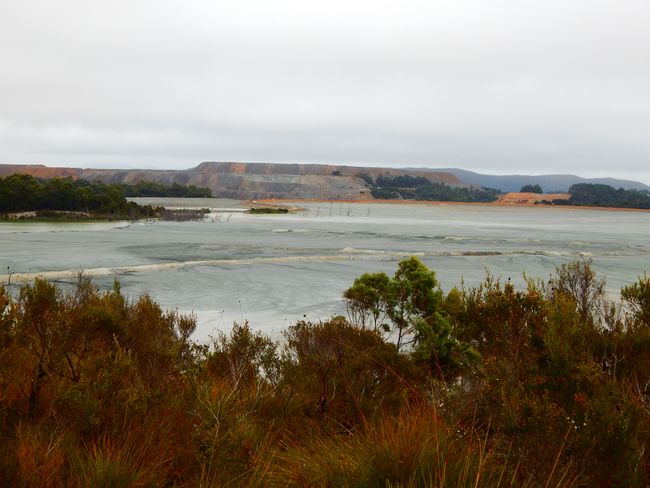
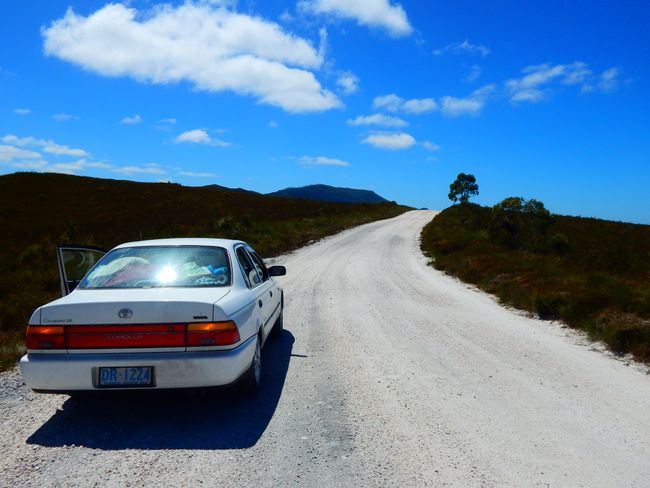
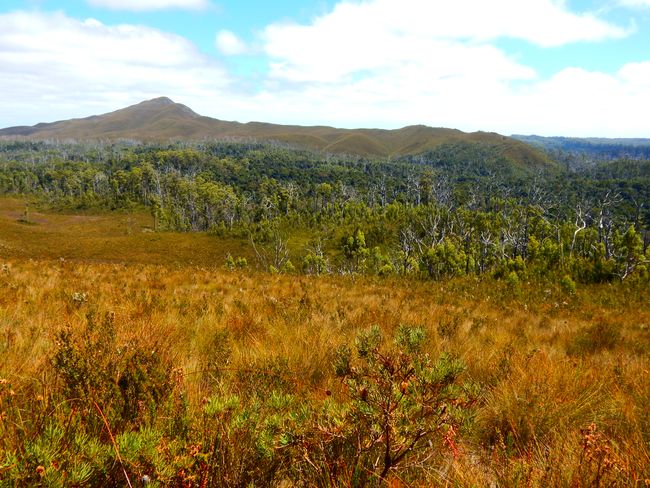
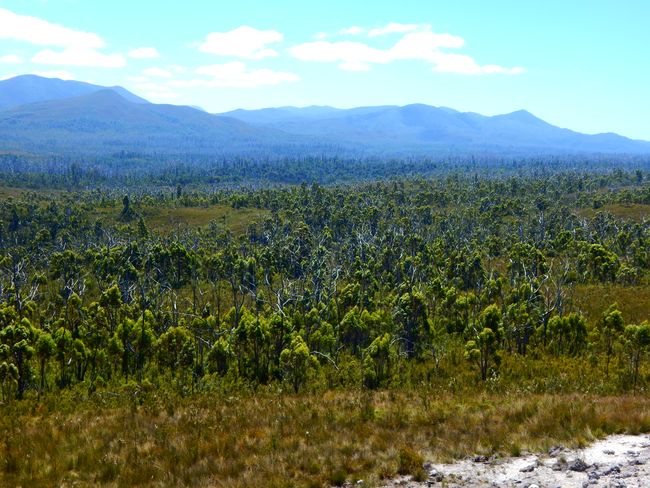
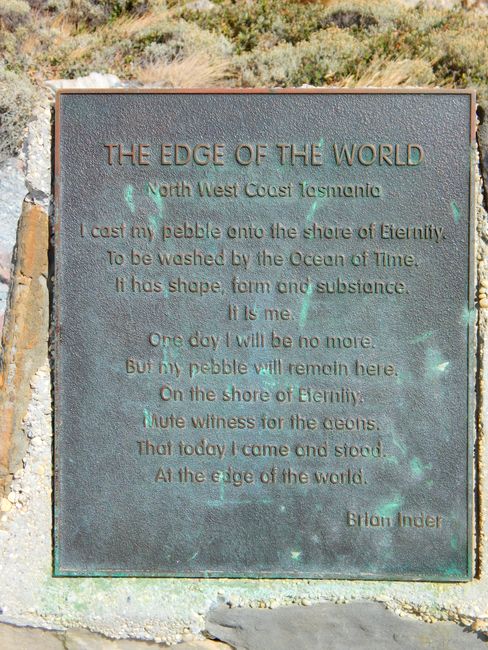
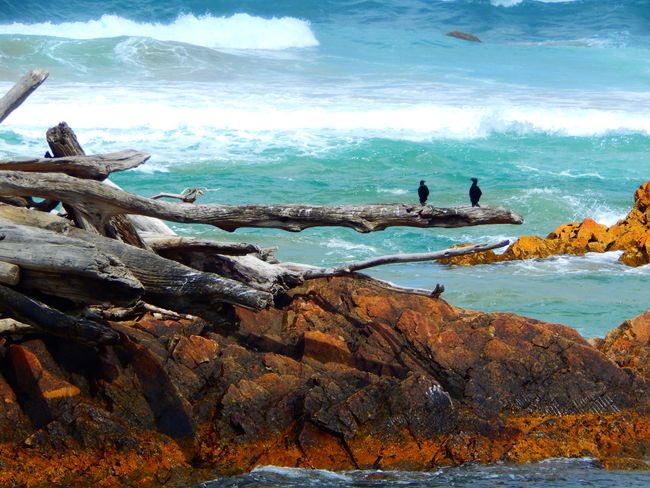
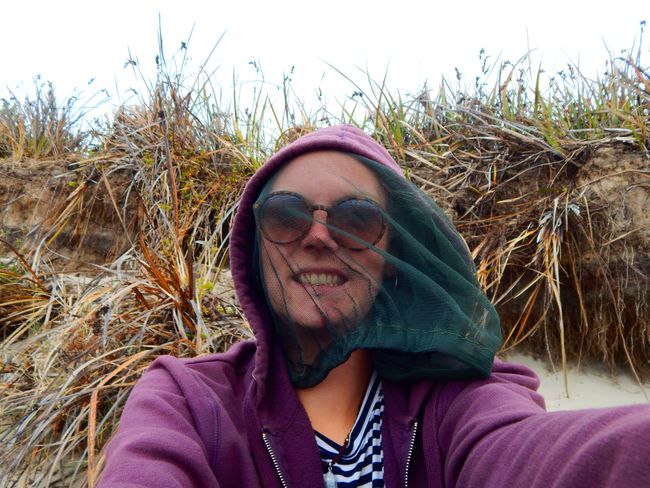
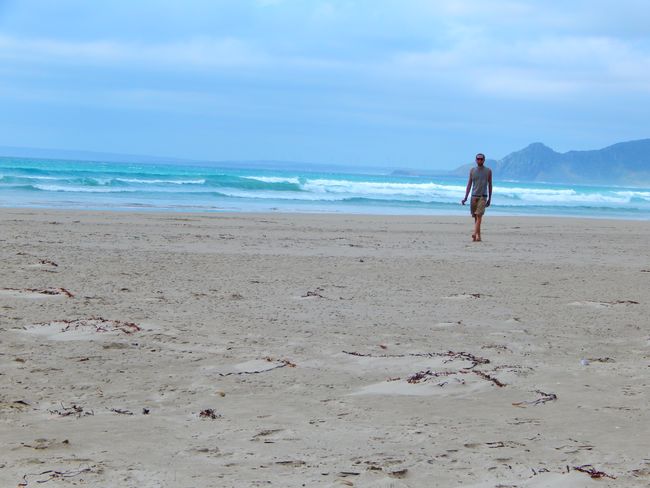
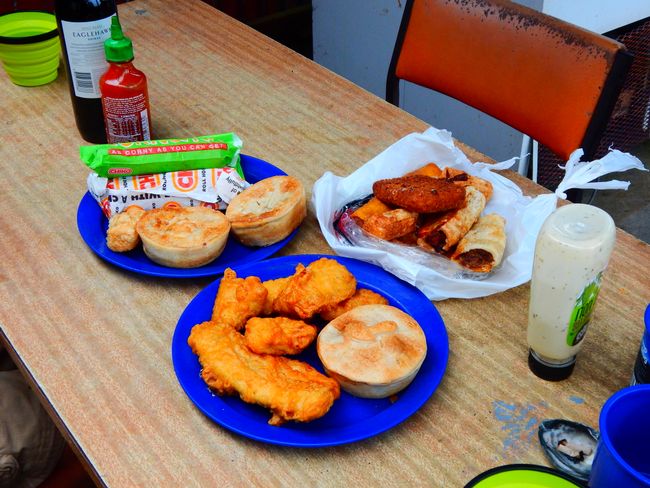
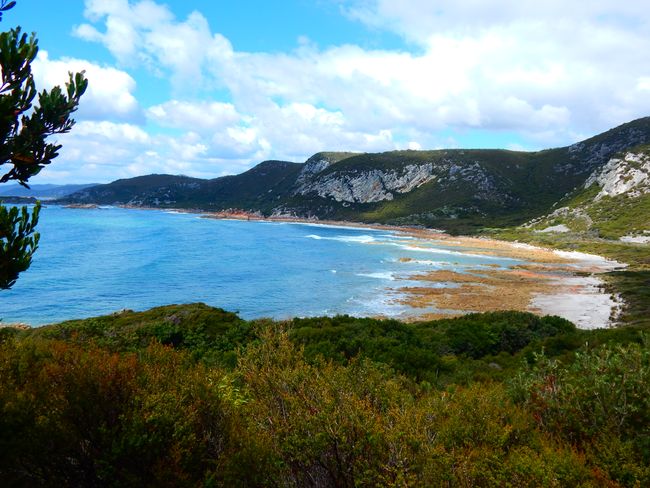
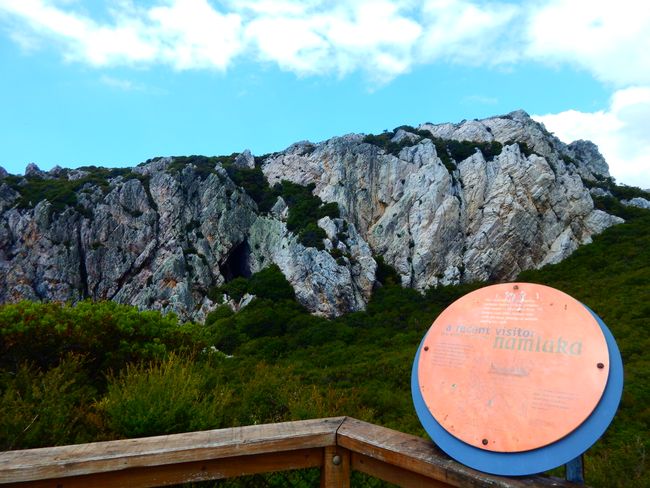
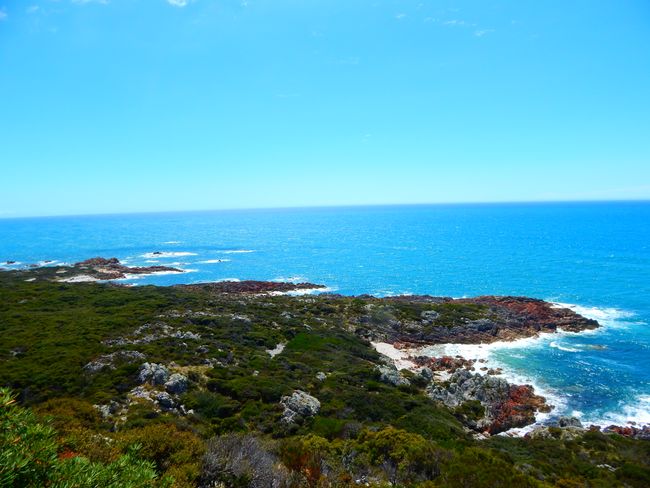
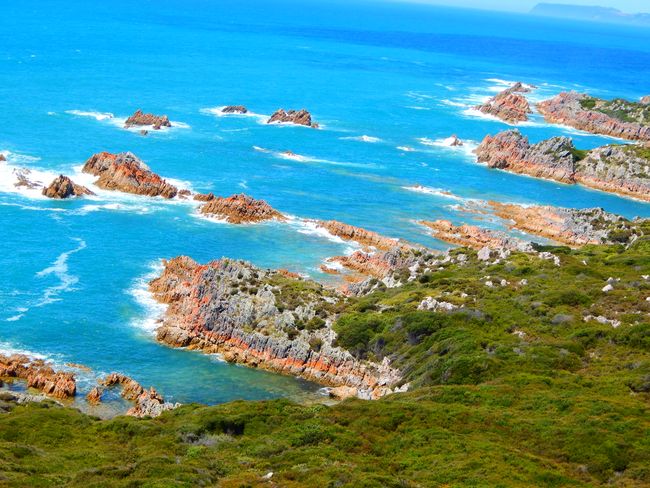
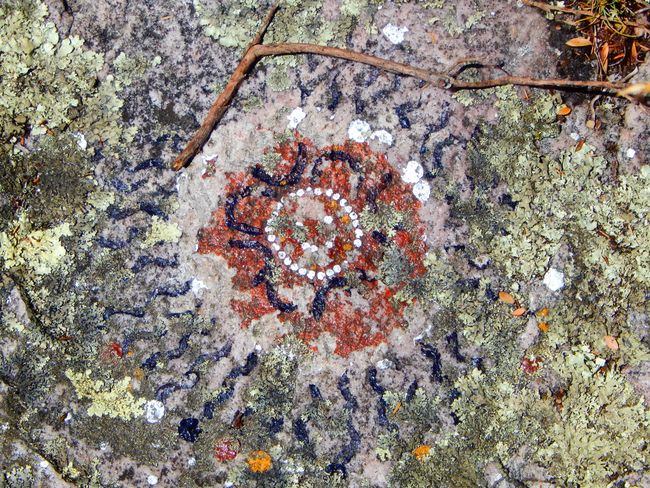
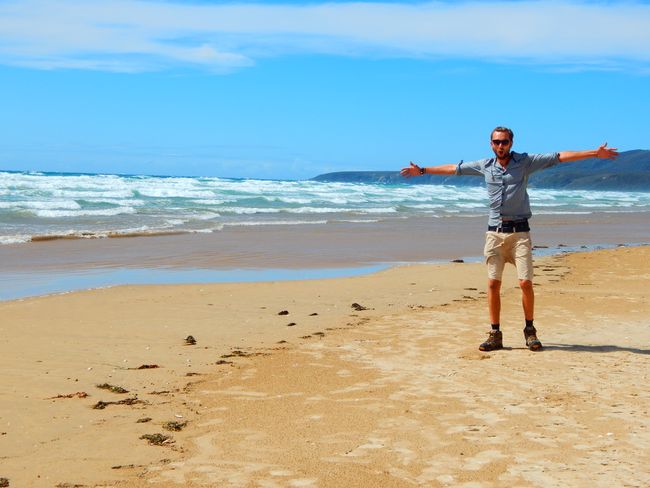
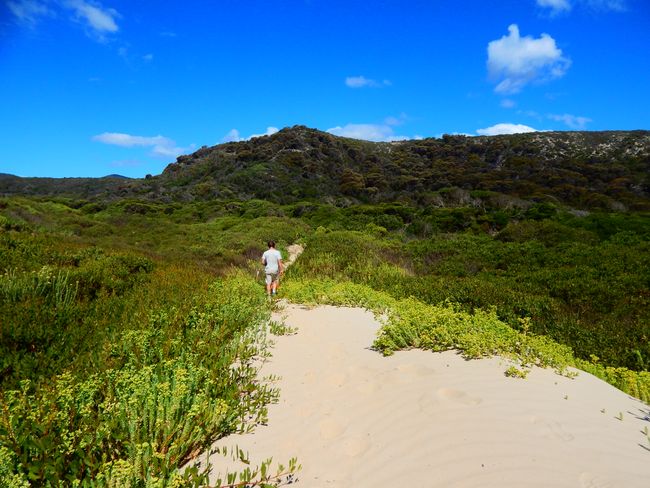
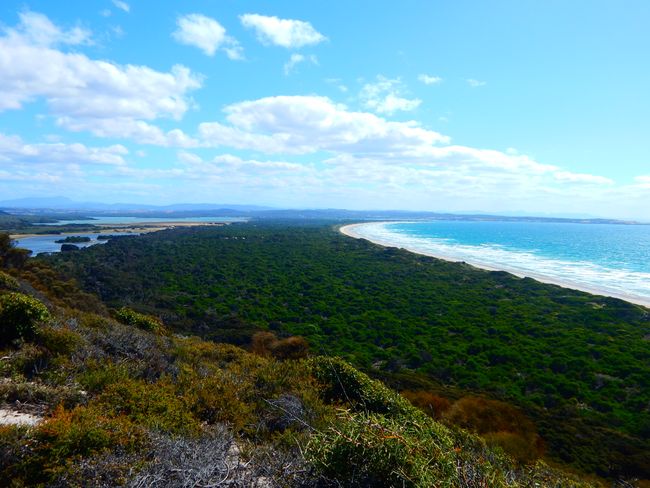
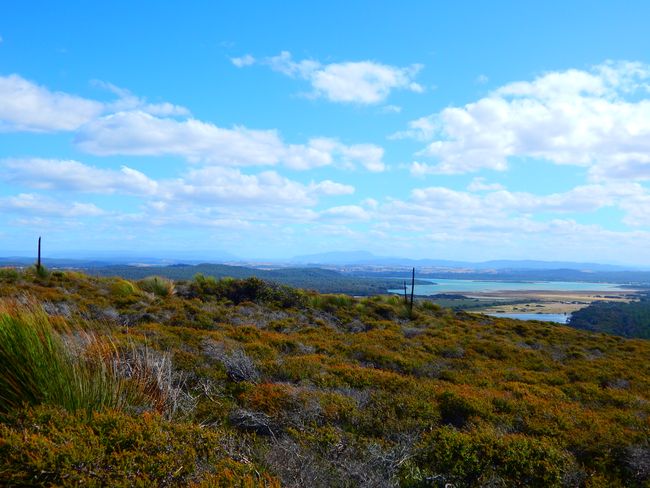
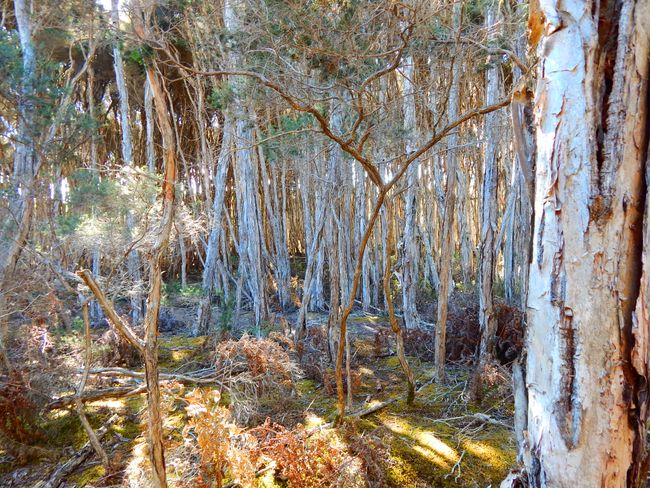
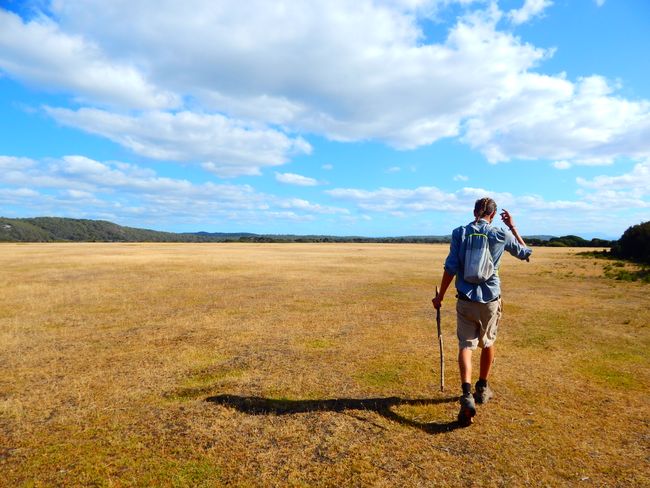
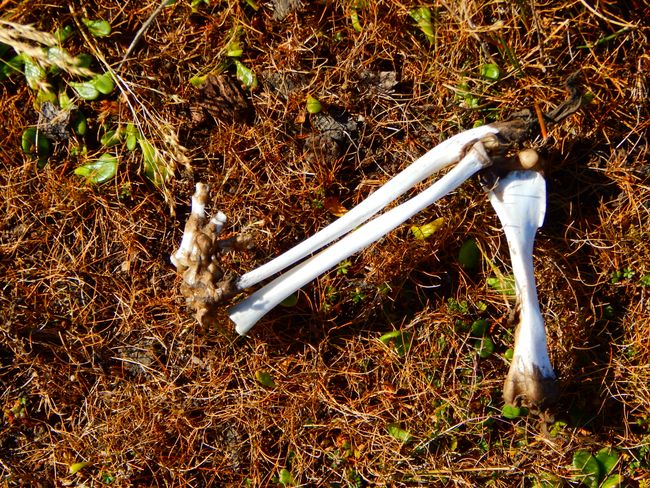
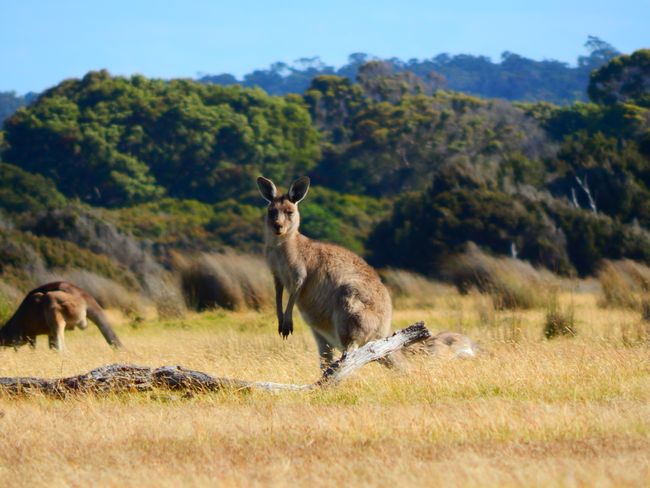
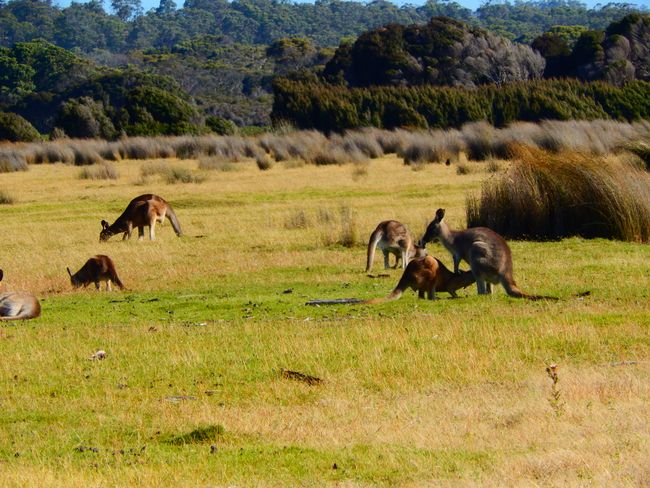
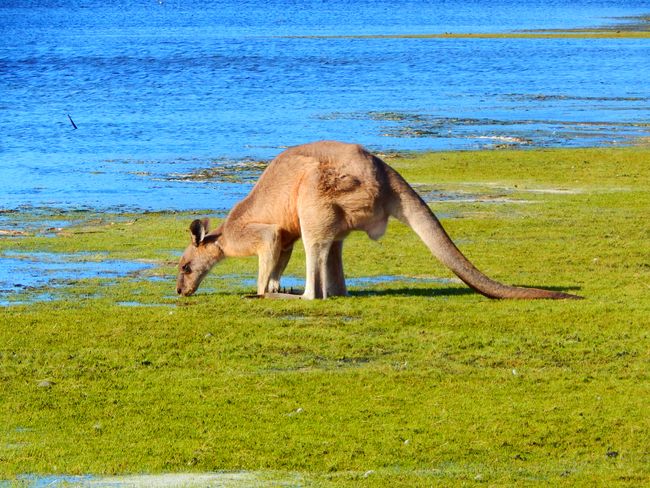
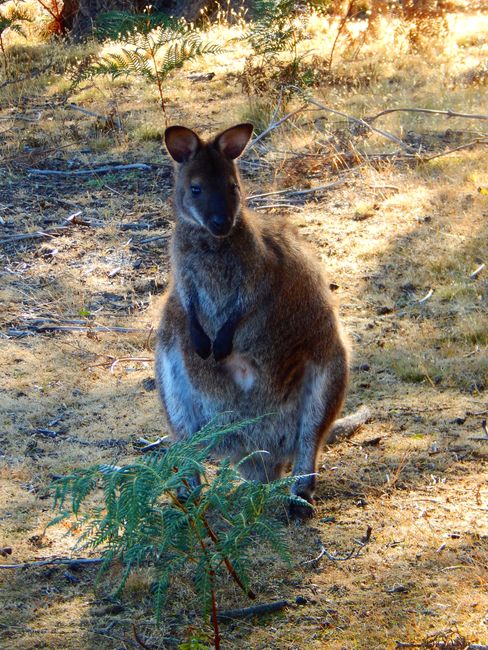
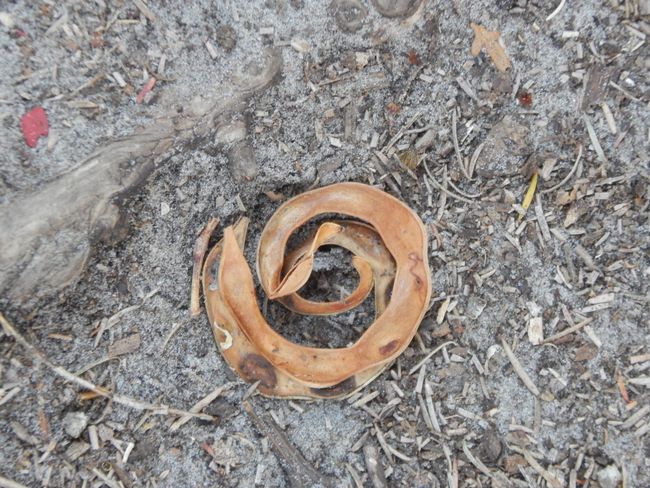
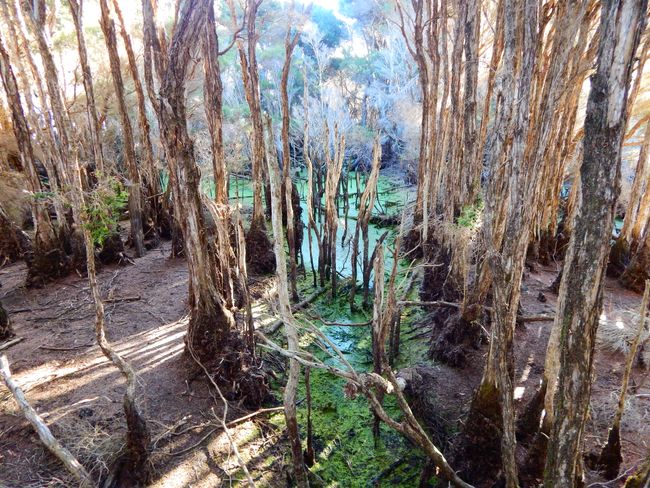
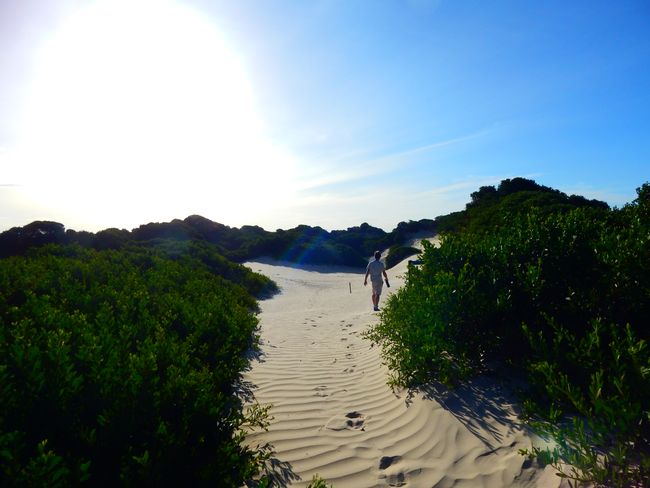
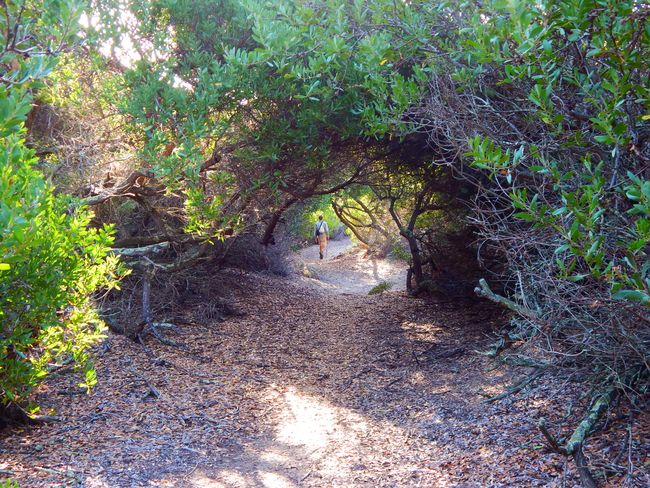
Jiandikishe kwa Jarida
Day one:
With two cars and five people (Antoine, Flo - French, Sei - Japanese), we leave the smoky town of Huonville and head to the wild west! Our first stop is a free campsite in Mount Field National Park. Due to the numerous wildfires, we unfortunately cannot enter the national park, so we search for platypuses near our campsite - unfortunately without success.
Day two:
Franklin-Gordon Wild Rivers National Park. With the help of an app, we find another beautiful free campsite. There is a large lake on our right and a small forest providing shade. In the afternoon, we build chairs and a table from the materials around us - we settle in. In the evening, we cook over the fire and feel truly wild.
Day three:
This morning, Sei leaves us. He drives back to Huonville to work for a few more days. After breakfast, the rest of us decide to spend one more day at the free campsite. The guys go fishing during the day (but return empty-handed) and I take it upon myself to build a windbreak around the fire pit. I spend the whole afternoon sitting there, weaving a rope from some kind of reed.
When the guys return, we build our windbreak together. In the evening, we cook over the fire and play cards.
Day four:
On the fourth day, we drive an impressive road over the mountains to the largest city in the west: Queenstown.
Queenstown is a city that survives through mining. It looks like the towns from American western movies. Queenstown appears deserted and is quickly crossed. We fill our water containers, go shopping, and have lunch.
We spend the next night right next to a reservoir overlooking the dam.
Day five:
Our journey takes us into the bush! We often can't drive faster than 20km/h because the roads and our overloaded Toyota don't allow for higher speeds. We are frequently overtaken by amazing jeeps and Land Rovers, even the caravans have higher clearance and better tires than our old bucket. But the Toyota makes it! It still takes us to every destination.
Suddenly, a river stretches across the road and we realize we need to call a ferry. Later, we have to drive 60km in the wrong direction to the only gas station in the region - and back again, at a maximum speed of 50km/h.
In the evening, we sleep in the middle of nowhere! We don't see a single car, let alone another person! We enjoy the time in the wilderness and have Surprise Potatoes for dinner (potatoes filled with different spices, wrapped in aluminum foil and cooked over the fire) and bananas for dessert, which we cut lengthwise, stuff with dark chocolate, wrap in aluminum foil, and bake over the fire.
At three o'clock in the morning, Flo and I get up to admire the starry sky.
Day six:
The road takes us to the coast! We stop at 'the edge of the world' and see the infinite expanse of the ocean in front of us. Waves crash against hard rocks on the coast, and thousands of insects, flies, and mosquitoes make it impossible for me to enjoy the view. We escape a few kilometers further to West Point, the westernmost point of Tasmania, where we will also spend the night. We spend the afternoon at the beach playing soccer and running away from horse flies.
Day seven:
It's raining. We have arrived in the northwest and check into a caravan park near Rocky Cape National Park. There is a warm shower and a covered seating area where we can escape the rain. In the evening, we want to go out for dinner. The only fast food restaurant within a 50km radius closes just as we arrive, but luckily the chef gives us a big bag of leftover food as a gift, which brings us great joy.
Day eight:
The rain has cleared and we can go to Rocky Cape National Park. We hike through the rainforest and explore caves where Aborigines lived. Signs explain that the Aborigines who lived on the coast mostly subsisted on seafood, so the floor of the caves is full of shells and fossils. Thousands of generations have lived in the rocks of the coast, surviving all climate changes and successfully adapting to the changing environment. It shakes me that this people were ruthlessly massacred.
We spend the afternoon at Four Sisters Beach.
Day nine:
We start the day with an unsuccessful search for penguins on the beach in the town of Penguin.
Then we go to Narawntapu National Park! In the afternoon, we take a short hike through the park. The trail leads us two kilometers along the beach with a tailwind. Then we climb Archer's Knob and enjoy a breathtaking view of the coast, the sea, the steppe, and the bush of the national park. We descend the mountain through the forest and suddenly the path opens up into a flat, steppe-like meadow. Without a trail, we follow the lake that stretches to our right, as recommended. We can already see herds of kangaroos from a distance! We sit down about 100 meters away from them and observe these strange animals. Their anatomy baffles me! The largest kangaroos in this herd are about 1.60 meters tall and already very impressive!
We sleep in the national park, watched by curious wallabies and possums while cooking.
Day ten:
In pouring rain, we pack our belongings and make our way back to Huonville.
Jiandikishe kwa Jarida
Jibu
